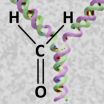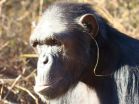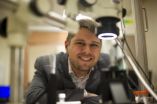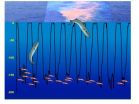(Press-News.org) This news release is available in German.
DNA - the carrier of genetic information - is constantly threatened by damage originating from exogenous and endogenous sources. Very special DNA lesions are DNA-protein crosslinks - proteins covalently linked to DNA. So far hardly anything was known about repair mechanisms specifically targeting DNA-protein crosslinks. Stefan Jentsch's team at the Max Planck Institute of Biochemistry in Martinsried, Germany, now discovered a protease that is able to chop down the protein component of DNA-protein crosslinks, thereby enabling organisms to copy their genetic information even if crosslinks arise. The results of this study have major implications for the understanding of genome integrity and cancer development.
The DNA in each cell is highly vulnerable to various types of damage. A special class of damage is caused by reactive compounds, such as formaldehyde, which are produced as byproducts of cellular reactions and cause the crosslinking (a formation of a covalent linkage) of proteins to DNA. Importantly, these so-called DNA-protein crosslinks are also caused by several anti-cancer drugs and are extremely toxic as they interfere with essential processes such as DNA replication. Cells need to unwind and separate the DNA double helix in order to copy its genetic information prior to the next round of cell division. DPCs inhibit this process by blocking the way of the unwinding enzyme replicative helicase, thus preventing replication and consequently cell division.
In the laboratory of Stefan Jentsch at the Max-Planck-Institute of Biochemistry, scientists now identified the protease Wss1 as a new safeguarding factor that chops down the protein components of DNA-protein crosslinks and thereby enables cells to duplicate their genome. Julian Stingele, a PhD student in the laboratory, found that cells lacking Wss1 are particularly sensitive to formaldehyde, extremely vulnerable to DNA-protein crosslinks and suffer from genomic instability. Notably, Wss1 has the unique property to cleave proteins only in the presence of DNA, suggesting that the enzyme is well tailored for its task to remove crosslinks from the genome and thus preserve genome stability.
Because the repair of DNA lesions is essential to prevent cancer formation, it is of crucial importance to understand the underlying cellular mechanisms. The newly identified DNA-protein crosslink-repair pathway is particularly important for rapidly dividing cells. Given the fact that cancer cells divide much faster than the majority of human cells, Wss1 might be an attractive future drug target for cancer therapy.
INFORMATION:
Original paper:
J. Stingele, M. Schwarz, N. Bloemeke, P. Wolf, and S. Jentsch
A DNA-dependent protease involved in DNA-protein crosslink repair.
Cell, July 3, 2014
Cellular defence against fatal associations between proteins and DNA
Max Planck researchers discover new mechanism of DNA repair
2014-07-03
ELSE PRESS RELEASES FROM THIS DATE:
'Grass-in-the-ear' technique sets new trend in chimp etiquette
2014-07-03
Chimpanzees are copycats and, in the process, they form new traditions that are often particular to only one specific group of these primates. Such are the findings of an international group of scientists, who waded through over 700 hours of video footage to understand how it came about that one chimpanzee stuck a piece of grass in her ear and started a new trend, and others soon followed suit. The findings of the study, led by Edwin van Leeuwen of the Max Planck Institute for Psycholinguistics in The Netherlands, are published in Springer's journal Animal Cognition.
In ...
GW researchers: Acute kidney injury and chronic kidney disease as interconnected syndromes
2014-07-03
WASHINGTON (July 3, 2014) — For more than 40 years, physicians have treated diminished kidney function as two distinct syndromes: acute kidney injury (AKI) and chronic kidney disease (CKD). However, recent epidemiologic and mechanistic studies suggest the two syndromes are not distinct entities, but interconnected. Published today in The New England Journal of Medicine, George Washington University (GW) researchers call for greater follow-up care of patients with AKI, who often present with CKD later in life, and vice versa.
"Our teaching has been wrong and the approach ...
Weighing up the secrets of African elephant body fat
2014-07-03
A research team from The University of Nottingham has carried out the first molecular characterisation of the African elephant's adipose tissue — body fat. This new information will form the basis of future studies aimed at securing the health and future survival of captive elephants.
The population of captive elephants, both Asian and African, in Europe and North America is not self-sustaining, largely due to poor fertility, resulting in a fewer baby elephants being born. It is acknowledged that if a solution for these reproductive difficulties cannot be found quickly, ...
Identifying microbial species
2014-07-03
Millions of microbial species populate the world, but so far only a few have been identified due to the inability of most microbes to grow in the laboratory. Edgar Goluch, an engineer, and Slava Epstein, a biologist, aim to change this. The pair, both researchers at Northeastern University, has developed a device that allows scientists to cultivate a single species of bacteria that can then be studied and identified.
Goluch's previous research devices incorporated permeable membranes that allow sequestered bacteria to be exposed to the nutrients and molecules of their ...
Women veterans want options, follow up support when dealing with intimate partner violence
2014-07-03
(Boston)--Intimate partner violence (IPV) is a significant health issue faced by women veterans, but little has been known up until now about their preferences for IPV-related care. A new study has found that most of these women support routine screening for IPV and want options, follow-up support, transparent documentation and Veterans Health Administration (VHA) and community resources. These findings appear in the journal Research in Nursing and Health.
Although women of all socio-demographic groups are at risk for IPV, population-based research suggests that women ...
Hot Pot with chicken causes campylobacter infections in Switzerland
2014-07-03
This news release is available in German and French. In Switzerland, between 7000 and 8000 persons fall ill with a campylobacter infection annually. This makes it the most frequent bacterial disease transmitted through food. Contamination of chicken meat with campylobacter bacteria during the slaughtering process is one of the known causes of the infection. An increase of campylobacteriosis case numbers is being observed throughout Europe. Human cases of campylobacteriosis must be reported to the relevant authorities in Switzerland.
In Switzerland, an unusual increase ...
Low brain protein levels associated with neurodegeneration
2014-07-03
Persons with reduced levels of the TREM2 protein could be at greater risk of developing neurodegenerative diseases such as Alzheimer's disease or frontotemporal dementia, according to an international study which included the participation of the Universitat Autònoma de Barcelona and the Sant Pau Biomedical Research Institute (IIB Sant Pau).
The study, published in Science Translational Medicine, reveals the molecular mechanism by which the mutated forms of this protein prevent the amyloid waste cleaning process from functioning correctly and detects a lower level of ...
Whales as ecosystem engineers
2014-07-03
"Consider the subtleness of the sea; how its most dreaded creatures glide under water, unapparent for the most part," wrote Herman Melville in Moby Dick. Today, we no longer dread whales, but their subtlety remains. "For a long time, whales have been considered too rare to make much of a difference in the oceans," notes University of Vermont conservation biologist Joe Roman. That was a mistake.
In a new paper, Roman and a team of biologists have tallied several decades of research on whales from around the world; it shows that whales, in fact, make a huge difference—they ...
No two lark sparrows are alike (at least when it comes to migration habits)
2014-07-03
A new paper by Dr. Jeremy Ross from the University of Oklahoma describes the use of tiny devices strapped to birds' backs called geolocators, which capture the individual migration routes of lark sparrows in North America. By sensing the light levels, these backpacks can pinpoint the location of a bird anywhere in the world, even if retrieving the data-logger can sometimes pose a major problem.
This study, published in the online journal Animal Migration, mapped for the first time the routes traveled by three lark sparrows after they left their breeding grounds in Ohio. ...
Consider water use in climate change policies, advise Australian researchers
2014-07-03
There's more to trying to slow down climate change than just cutting greenhouse gas emissions. Technology, policies or plans that aim to do so should also take environmental factors such as water usage into account. A more integrated approach might make some options considerably more attractive than others, especially when implemented in arid countries such as Australia, advise Philip Wallis of Monash University in Australia and colleagues, in an article in Springer's journal Climatic Change.
The researchers considered the example of Australia to show how water usage ...
LAST 30 PRESS RELEASES:
SfN announces Early Career Policy Ambassadors Class of 2026
Spiritual practices strongly associated with reduced risk for hazardous alcohol and drug use
Novel vaccine protects against C. diff disease and recurrence
An “electrical” circadian clock balances growth between shoots and roots
Largest study of rare skin cancer in Mexican patients shows its more complex than previously thought
Colonists dredged away Sydney’s natural oyster reefs. Now science knows how best to restore them.
Joint and independent associations of gestational diabetes and depression with childhood obesity
Spirituality and harmful or hazardous alcohol and other drug use
New plastic material could solve energy storage challenge, researchers report
Mapping protein production in brain cells yields new insights for brain disease
Exposing a hidden anchor for HIV replication
Can Europe be climate-neutral by 2050? New monitor tracks the pace of the energy transition
Major heart attack study reveals ‘survival paradox’: Frail men at higher risk of death than women despite better treatment
Medicare patients get different stroke care depending on plan, analysis reveals
Polyploidy-induced senescence may drive aging, tissue repair, and cancer risk
Study shows that treating patients with lifestyle medicine may help reduce clinician burnout
Experimental and numerical framework for acoustic streaming prediction in mid-air phased arrays
Ancestral motif enables broad DNA binding by NIN, a master regulator of rhizobial symbiosis
Macrophage immune cells need constant reminders to retain memories of prior infections
Ultra-endurance running may accelerate aging and breakdown of red blood cells
Ancient mind-body practice proven to lower blood pressure in clinical trial
SwRI to create advanced Product Lifecycle Management system for the Air Force
Natural selection operates on multiple levels, comprehensive review of scientific studies shows
Developing a national research program on liquid metals for fusion
AI-powered ECG could help guide lifelong heart monitoring for patients with repaired tetralogy of fallot
Global shark bites return to average in 2025, with a smaller proportion in the United States
Millions are unaware of heart risks that don’t start in the heart
What freezing plants in blocks of ice can tell us about the future of Svalbard’s plant communities
A new vascularized tissueoid-on-a-chip model for liver regeneration and transplant rejection
Augmented reality menus may help restaurants attract more customers, improve brand perceptions
[Press-News.org] Cellular defence against fatal associations between proteins and DNAMax Planck researchers discover new mechanism of DNA repair



